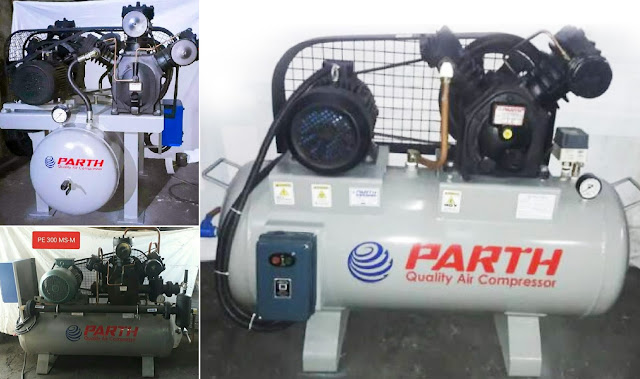Air compressors are mechanical devices that can be used to elevate the pressure in various compressible gases or fluids, including air. They are used across industries in multiple applications and seldom concealed in places like your HVAC unit or your refrigerator. Remember when gas station employees inject compressed air into your car's tire. Or when your local tire shop used compressed air to remove one of your tires with an air tool. These examples are not exhaustive as they offer many uses in maintenance and leisure both at home and in businesses. The pressure of compressed air has many applications, which we will discuss in the list we have compiled below.
· Vehicle-Mounted Compressors
Air compressors in standard vehicles include truck-mounted diesel air compressors, truck-mounted electric air compressors, etc. One example that springs to mind is that of air brake systems. They involve using compressed air to work, requiring an air compressor near them to recharge the brake system. Service vehicles might need air compressors on board to perform the appropriate functions or make the compressor mobile to be deployed to job locations if the need arises. For instance, fire trucks may have breathable air compressors placed in them to fill air tanks to replenish air worth breathing. These compressors come in handy for first responders and firefighters alike.
· Medical Applications
Compressors are widely used in medicine, especially in the dental field. Air compressor manufacturers in India have aced the game of designing dental air compressors with clean and compressed air sources. This air helps in various dental procedures and pneumatically powering operated dental apparatus such as toothbrushes and drills. The pressure and horsepower are critical determinants of choosing a good air compressor. Patients suffering from oxygen toxicity are given an alternative so that they are supplied breathing air that is free from other gases. This air stored in gas cylinders constitutes a medical application of air compressors. These air compressors can either be stationary or portable with a medical facility or a hospital. Other uses might include supplying air to specialized patient equipment (compression cuffs). Here, compressed air helps provide pressure on a patient's limbs to keep a check on the extreme fluid build-up that could be a probable cause of weak cardiac function in a lot of cases.
· Laboratory Gas Compression
Laboratory air compressors are used in highly specialized industrial applications and employed to generate the supply of special gases such as oxygen, hydrogen, helium, argon, nitrogen, etc. Ammonia compressors can work with gas mixtures such as carbon dioxide, used in the food and beverage industry. Helium compressors supply gas to their respective storage tanks for future use in laboratories. These applications include but are not limited to detecting subtle leaks. Oxygen compressors can efficiently serve the storage of oxygen for use in medical facilities and hospitals later on.
· Beverages and Food Processing
It is well known that air compressors have found a footing in the food and beverage industry, often playing a vital role. They can work throughout the production cycle and perform tasks and processing operations such as preparation, sorting, packaging, palleting, filling, cooling, freezing, closing and checking devices, distribution, preservation, etc. Another noteworthy fact is that compressed air provides and maintains a sanitary environment, which is crucial during consumable products. It is intuitive during the generation of compressed air at an on-site location. Factors such as air quality and usage are much more controllable for the end-users.
· Oil and Gas Uses
Air compressors are incredibly prevalent in their use in the oil and gas industry. Natural gas compressors are used to produce compressed natural gas for transportation and storage. Some of the operations involved might require the discharge pressures of 1000 to 3000 psi from high-pressure compressors. Depending on the application, the discharge pressure range can also go north of even 60,000 psi.


Comments
Post a Comment